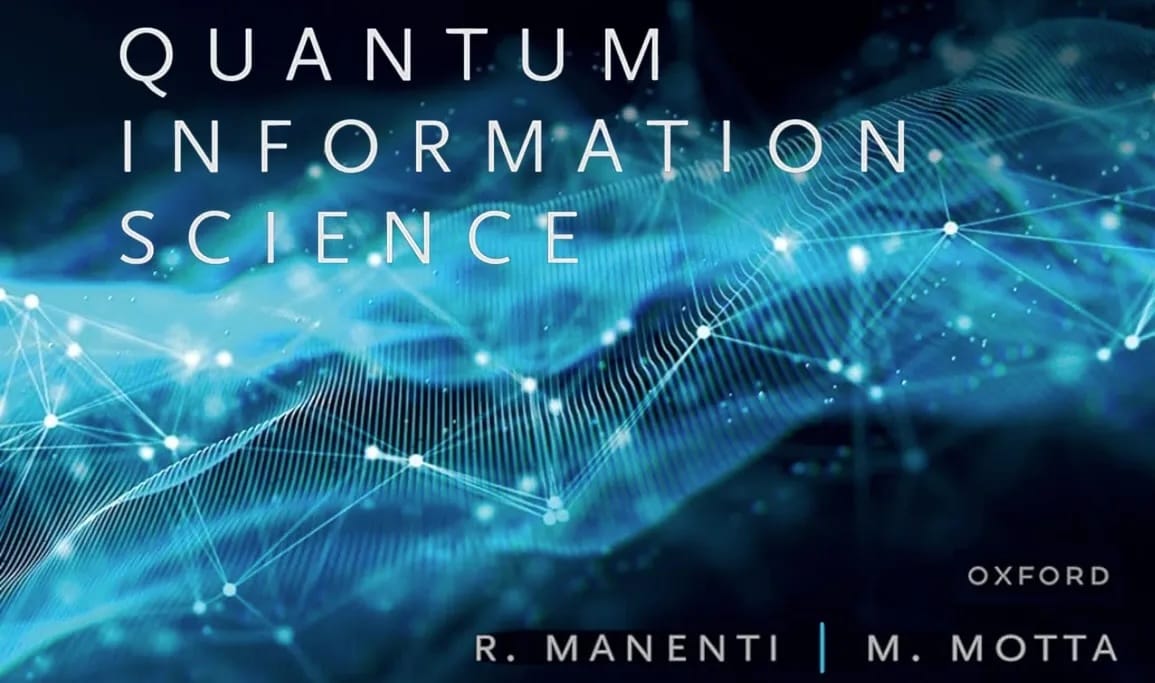A Resourceful Textbook
I recently bought a copy of "Quantum Information Science" and have gone through half of it. I must say it is an excellent resource for professionals with a background in quantum physics and computing.
The book was written by Riccardo Manenti while he was a Ph.D. student at Oxford and Mario Motta while he was a Ph.D. student at the University of Milan. Published by Oxford University Press in 2023, it features superb layout and design. With over 700 pages, it contains numerous equations and over 200 figures. The content is well-organized, up-to-date, and easier to read than the seminal work in this field, "Quantum Computation and Quantum Information" by Isaac Chung and Michael Nielsen. I especially appreciate the summary tables at the end of each chapter.
Four Parts of the Book
- Foundations: The authors present fundamental concepts of mathematics, computational theory, linear algebra, and quantum mechanics. They emphasize that a solid understanding of these notions is crucial for comprehending quantum information science.
- Modern Quantum Mechanics: The authors delve into advanced tools of quantum mechanics to understand how noise affects the functioning of a real quantum computer. They explain that a quantum computer can be considered an open quantum system constantly interacting with the environment. This interaction is unavoidable and might destroy fragile quantum effects, thereby introducing errors in computation.
- Applications: The authors explain the concept of entanglement and various quantum algorithms. They start with early quantum algorithms and then discuss quantum algorithms for time evolution and Hamiltonian eigenstates simulation.
- Quantum Engineering: The authors explain the physics of superconducting devices.
My Thoughts: An Integrated Curriculum is Needed
Quantum computing and information is a complex interdisciplinary field encompassing physics, mathematics, and computer science. Mastering this field presents a significant challenge for the average learner, requiring an understanding of quantum mechanical principles, heavy mathematical formulations, and the application of these concepts in quantum algorithms, which are more complex than traditional ones.
As the field advances and matures, educational resources must also evolve to match the systematic nature of disciplines such as mechanical engineering and computer science. In these established fields, decades of teaching experience have led to the development of systematic curricula and comprehensive textbooks for students from freshman year through to graduate school. The mathematics, sciences, and necessary tools are categorized and streamlined in these resources to facilitate easy access and learning efficiency. Unfortunately, the field of quantum computing and information lacks this educational infrastructure.
Textbooks should not merely compile research papers; their primary goal should be to assist effective learning. A well-structured educational framework can greatly enhance the learning process in quantum information science.
A Promising Educational Approach
For example, a basic yet rigorous introduction to quantum computing can start with linear algebra. Quantum mechanical concepts can be introduced using two-level systems and linear algebra, rather than the traditional approach with differential equations. A foundation in probability is also essential, but with an emphasis on stochastic processes and simulations rather than statistical inference. Quantum algorithms can be organized into foundational algorithms (from Deutsch to Shor), toolbox algorithms (HHL, QFT, QPE, VQE, etc.), optimization problems, chemistry simulations, and quantum machine learning. Special topics such as error correction, hardware, and advanced quantum mechanics each deserve their own textbooks, resulting in a comprehensive series of resources with proper progression. I estimate that around ten textbooks are needed to comprehensively cover this field.
While "Quantum Information Science" is a great and comprehensive resource, it would be even more effective if broken into a series of textbooks. This approach would allow students to follow the progression of concepts more easily. By dividing the material into focused volumes, each addressing specific topics, learners can build their understanding step-by-step within an integrated curriculum. This systematic breakdown would enhance accessibility and improve the overall learning experience in quantum information science. I am eager to see this happen.



Member discussion: